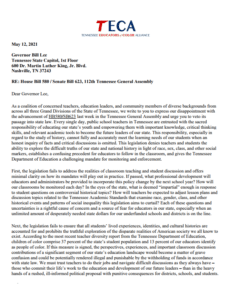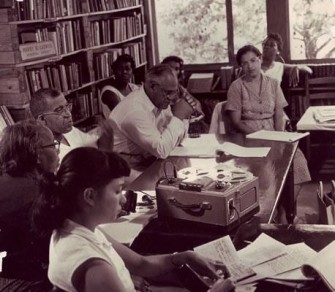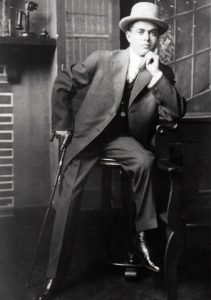The Tennessee Educators of Color Alliance (TECA), joined by 350 plus teachers, parents and education leaders across the state, wrote a letter urging Governor Bill Lee to veto HB580/SB623. The bill places limits on teaching about racism in Tennessee public schools. The effort was led by TECA director Diarese George who is also coordinator of the Teaching for Black Lives study group in Tennessee. This letter adds to the statements by teachers committed to truth telling.

PDF of the letter, with signatures.
May 12, 2021
Governor Bill Lee
Tennessee State Capitol
1st Floor 600
Dr. Martin Luther King, Jr. Blvd.
Nashville, TN 37243
RE: House Bill 580 / Senate Bill 623, 112th Tennessee General Assembly
Dear Governor Lee,
As a coalition of concerned teachers, education leaders, and community members of diverse backgrounds from across all three Grand Divisions of the State of Tennessee, we write to you to express our disappointment with the advancement of HB580/SB623 last week in the Tennessee General Assembly and urge you to veto its passage into state law. Every single day, public school teachers in Tennessee are entrusted with the sacred responsibility of educating our state’s youth and empowering them with important knowledge, critical thinking skills, and relevant academic tools to become the future leaders of our state. This responsibility, especially in regard to the study of history, cannot fully and accurately meet the learning needs of our students when an honest inquiry of facts and critical discussions is omitted. This legislation denies teachers and students the ability to explore the difficult truths of our state and national history in light of race, sex, class, and other social markers, establishes a confusing precedent for educators to follow in the classroom, and gives the Tennessee Department of Education a challenging mandate for monitoring and enforcement.
First, the legislation fails to address the realities of classroom teaching and student discussion and offers minimal clarity on how its mandates will play out in practice. If passed, what professional development will educators and administrators be provided to incorporate this policy change by the next school year? How will our classrooms be monitored each day? In the eyes of the state, what is deemed “impartial” enough in response to student questions on controversial historical topics? How will teachers be expected to adjust lesson plans and discussion topics related to the Tennessee Academic Standards that examine race, gender, class, and other historical events and patterns of social inequality this legislation aims to curtail? Each of these questions and uncertainties is a rightful cause of concern and a source of fear for educators in our state, especially when an unlimited amount of desperately needed state dollars for our underfunded schools and districts is on the line.
Next, the legislation fails to ensure that all students’ lived experiences, identities, and cultural histories are accounted for and prohibits the truthful exploration of the disparate realities of American society we all know to exist. According to the most recent teacher diversity report from the Tennessee Department of Education, children of color comprise 37 percent of the state’s student population and 13 percent of our educators identify as people of color. If this measure is signed, the perspectives, experiences, and important classroom discussion contributions of a significant segment of our state’s education landscape would become a matter of grave confusion and could be potentially rendered illegal and punishable by the withholding of funds in accordance with state law. We must trust teachers to do their jobs and navigate difficult discussions as they always have — those who commit their life’s work to the education and development of our future leaders — than in the heavy hands of a rushed, ill-informed political proposal with punitive consequences for districts, schools, and students.
The Tennessee Department of Education is currently guided by its three strategic priorities of the Best For All framework: academics — “all Tennessee students will have access to a high-quality education, no matter where they live”; whole child — “Tennessee public schools will be equipped to serve the academic and non-academic needs of all kids”; and educators — “Tennessee will set a new path for the education profession to be the top state to become and remain a teacher.” None of these three noble goals can be achieved in the absence of instruction that builds discernment and critical thinking skills required for strong, educated, and well-informed future decision-makers. Our students are naturally inquisitive, and when presented with complex scenarios emerging from Tennessee’s history — from the experiences of Native American tribes from where our state’s name is derived, the impact of the slave trade, the battles of the Civil War, Reconstruction, the founding of the Ku Klux Klan, the women’s suffrage movement, the storied struggles for civil rights, and more — they deserve full engagement and contextualization.
To examine our collective history and controversial and strenuous episodes does not mean that educators are sharing propaganda, nor casting blame. Rather, it constitutes a teachable moment in which all of our students and their communities can take away important, lifelong lessons that inform ways to avoid the errors of the past and to move forward — together — toward a more just, prosperous, and unified tomorrow.
We strongly urge you to veto HB580/SB623 and allow teachers to continue to hone their craft and lead their classrooms through important historical lessons and honest social discussions without the fear of repercussion.
Respectfully signed . . . (Read letter with signatures)










Twitter
Google plus
LinkedIn